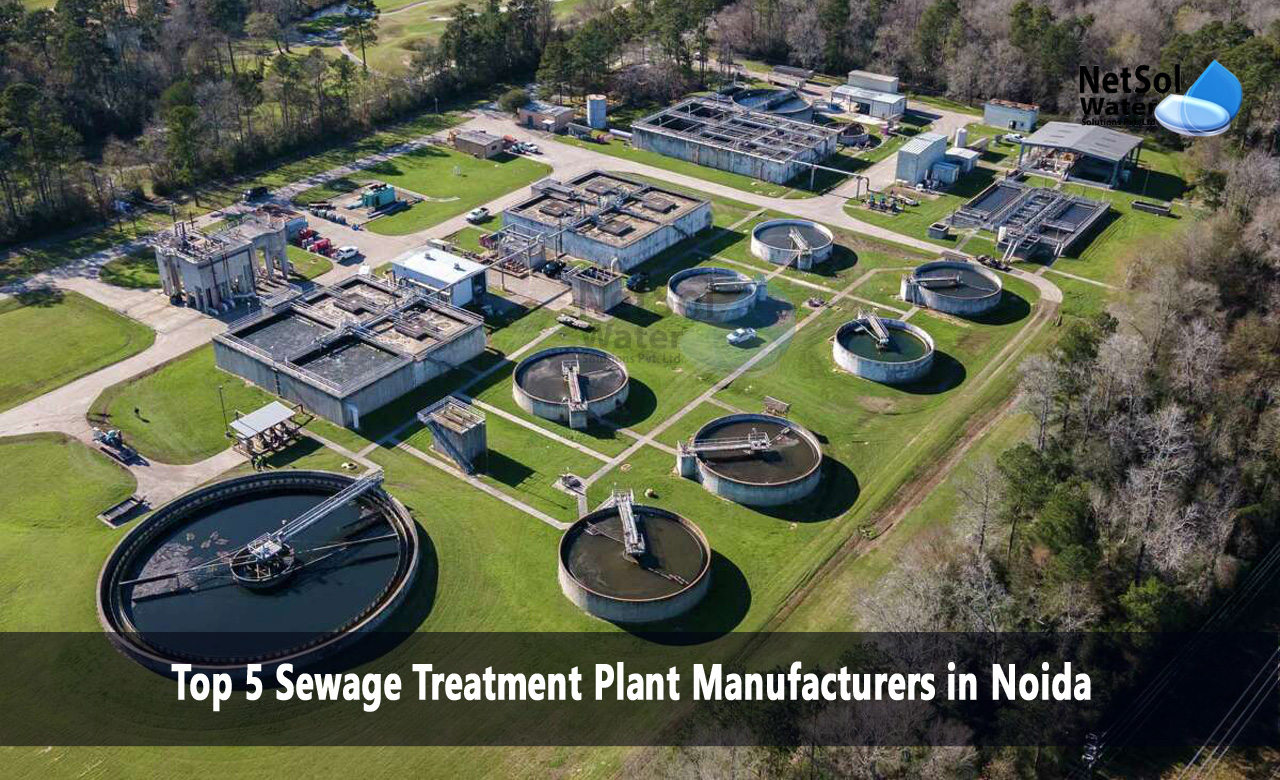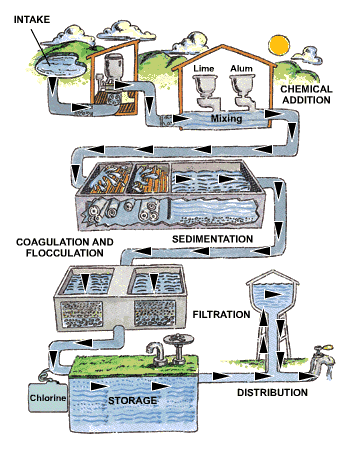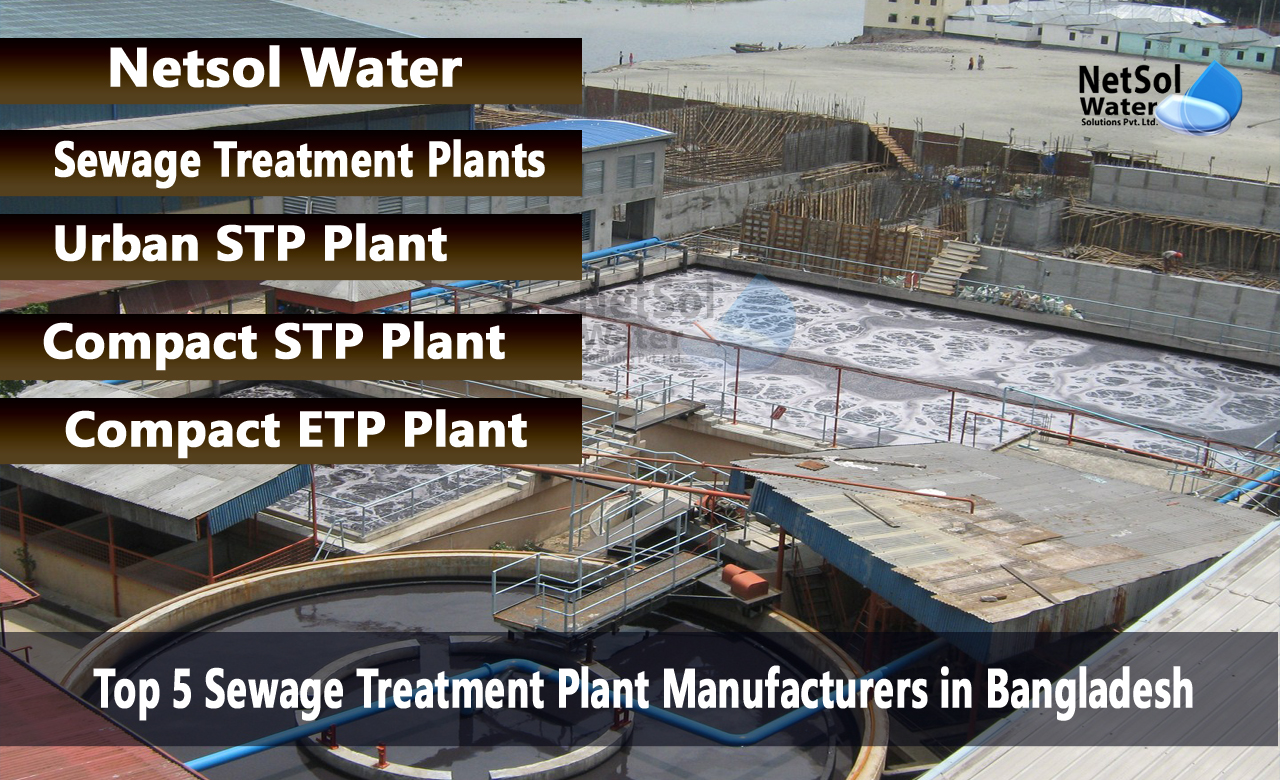Sewage Treatment Plant vs. Septic Tank: Which is Better
Businesses and homes frequently have to choose between a septic tank and a sewage treatment plant (STP) when it comes to wastewater management. Although treating and disposing of wastewater is the main purpose of both systems, their methods of operation and suitability for various applications differ greatly. Here we are going to equate Sewage Treatment Plant vs Septic Tank and compare their advantages and disadvantages so that you can make an intelligent decision. Also, here we will introduce you to the reasons why Netsol Water, India’s best Sewage Treatment Plant manufacturer, is your smarter option to treat your wastewater.
What is a Sewage Treatment Plant?
A Sewage Treatment Plant is a technology-oriented system to purify sewage before discharging it into the environment or for reusing purposes. It is comprised of a mix of different stages with physical, chemical, and biological treatment processes to remove the pollutants from sewage.
Important Features of a Sewage Treatment Plant:
- Multi-Stage Filtration: An STP can have different stages of treatment and filtration such as primary, secondary and tertiary treatments which guarantee the removal of solids, organic content, and other contaminants.
- Latest Technology: STPs can employ the latest technology such as aeration tanks, bio-filters, and chemical treatment to treat water to make it very pure.
- Effective Waste Water Disposal: The treated water can be released into the environment or employed for non-potable purposes like irrigation or cooling towers.
- Most Appropriate for High Population: STPs can be utilized on large areas of land, industrial estates, or housing estates where most of the waste water needs to be treated.
What is a Septic Tank?
A Septic Tank is an affordable, underground sewage system utilized in the majority of residential homes or small enterprises. It is a standalone system that enables solids to settle at the bottom of the tank while liquid effluent is piped out through gravel or soil for treatment.
Major Most Important Features of a Septic Tank
- Simple Process: Septictank treats wastewater by settling and anaerobic digestion. Natural bacteria are used to try to destroy wastewater solids.
- Simple Design: It is a basic system that is composed of a tank, outlet and inlet pipes, and drain field only designed for wastewater disposal.
- Smaller Capacity: Septic tanks are employed in an attempt to serve small properties like single residence homes or small offices.
- Maintenance Requirement: Septic tanks need to be pumped and serviced at a predetermined frequency to prevent clog and overflow.
Sewage Treatment Plant vs. Septic Tank: Comparison
Treatment Efficiency
Sewage Treatment Plant: STPs provide a greater level of treatment and can remove a wide range of pollutants such as pathogens, organic matter, and chemicals. STP-treated water is usually reused, e.g., industrial process or irrigation.
Septic Tank: A septic tank does a very much lesser job than treatment by allowing for settling of solids and allowing for effluent to flow through ground filtration. It is not such a comprehensive process of treatment as is offered in an STP and would not necessarily qualify as environmental or public health acceptable in some regions.
Capacity
Sewage Treatment Plant: STPs are used in the case of high volumes of wastewater and can serve a whole community, business complex, or industry. STPs are versatile, i.e., their size can be increased with growing demand.
Septic Tank: Septic tanks are used for small residences or small institutions. They have restricted capacity and cannot handle large developments or industrial purposes.
Space Requirements
Sewage Treatment Plant: STPs require more space due to the different treatment processes. They may require a separate space for the fixing of aeration tanks, bio-filters, and machinery.
Septic Tank: Septic tanks are of small size and take up less space compared to STPs. They are often kept underground and can be fitted in a small area, hence suitable for small land plots.
Maintenance
Sewage Treatment Plant: The STPs are serviced more professionally and regularly because of their high complexity. Although they are better and less susceptible to maintenance after installation, they require professionals to maintain them so that they can function well in the long term.
Septic Tank: It is simpler to keep sanitary but should be pumped out every so often to flush out solids that remain behind in the tank. A septic tank, if left untouched, will cause clog-ups, overflows, and soil contamination.
Cost
Sewage Treatment Plant: An STP is costlier than a septic tank, installation as well as maintenance. But where there are large buildings or high-density complexes of wastewater generation, it is an effective and good alternative.
Septic Tank: Septic tanks are more economical to install and maintain. They are best suited for small tracts of land with low water production of wastewater. Their efficiency may be disrupted where the ground is poor with high water table or weak ground for good filtration.
Environmental Impact
Sewage Treatment Plant: The designing of STPs is done in a way that it reduces the impact on the environment to the maximum possible extent by treating the wastewater to a very large proportion, thus the effluent released to the environment is pure and hazard-free. They also grant the flexibility of using the treated water for other than drinking purposes, which decreases the usage of fresh water as a whole.
Septic Tank: Although septic tanks purify wastewater, effluent typically gets filtered by the ground and can be contaminated unless caution is taken in the system. In some cases, untreated or partially treated effluent seeps into groundwater and pollutes it.
Which is Best for You?
- For Large Estates, Companies, or Residential Estates: A Sewage Treatment Plant is a better alternative, which is treatment more effective, can handle large quantities of wastewater, and can be designed to meet special regulatory requirements.
- For Small Estates or Individual Houses: A Septic Tank is an inexpensive and simple solution for small wastewater treatment. It is suitable for small residential estates with small wastewater volumes.
Why Choose Netsol Water Sewage Treatment Plant?
When you choose the best Sewage Treatment Plant manufacturer, you may rely on Netsol Water. Why?
- Expertise and Experience: We are experienced in designing and building high-quality Sewage Treatment Plants as per the individual needs of our clients.
- Latest Technology: Our STPs incorporate innovative technologies for providing effective and consistent treatment as per environmental standards.
- Customization: We are aware of the fact that every business or property is unique with its own specifications, and we give you solutions appropriate for your wastewater treatment requirements.
- After-sales Support: Our personnel take proper care after-sales so that your system performs well in the future as well.
Conclusion
Sewage Treatment Plant and Septic Tank are employed for the treatment of wastewater but based on property size, amount of wastewater, and the nature of treatment sought. If someone has a commercial property or very large property that requires high treatment and efficiency requirements, then use a Sewage Treatment Plant.
For Effective High-Performance Sewage Treatment Plants, Netsol Water is the ideal Sewage Treatment Plant manufacturer to trust. Based on our experience and most recent technology, we can assist you in getting the best system appropriately suitable for your application in order to make your wastewater treatment process efficient, effective, as well as environmental-friendly.
Do you need an advice or assistance on selecting the best water and waste water treatment unit? We have solutions for all your problems!
Let us know your problem, our experts will make sure that it goes away.
For an assistance or related query,
Call on +91-965-060-8473 Or write us at enquiry@netsolwater.com




